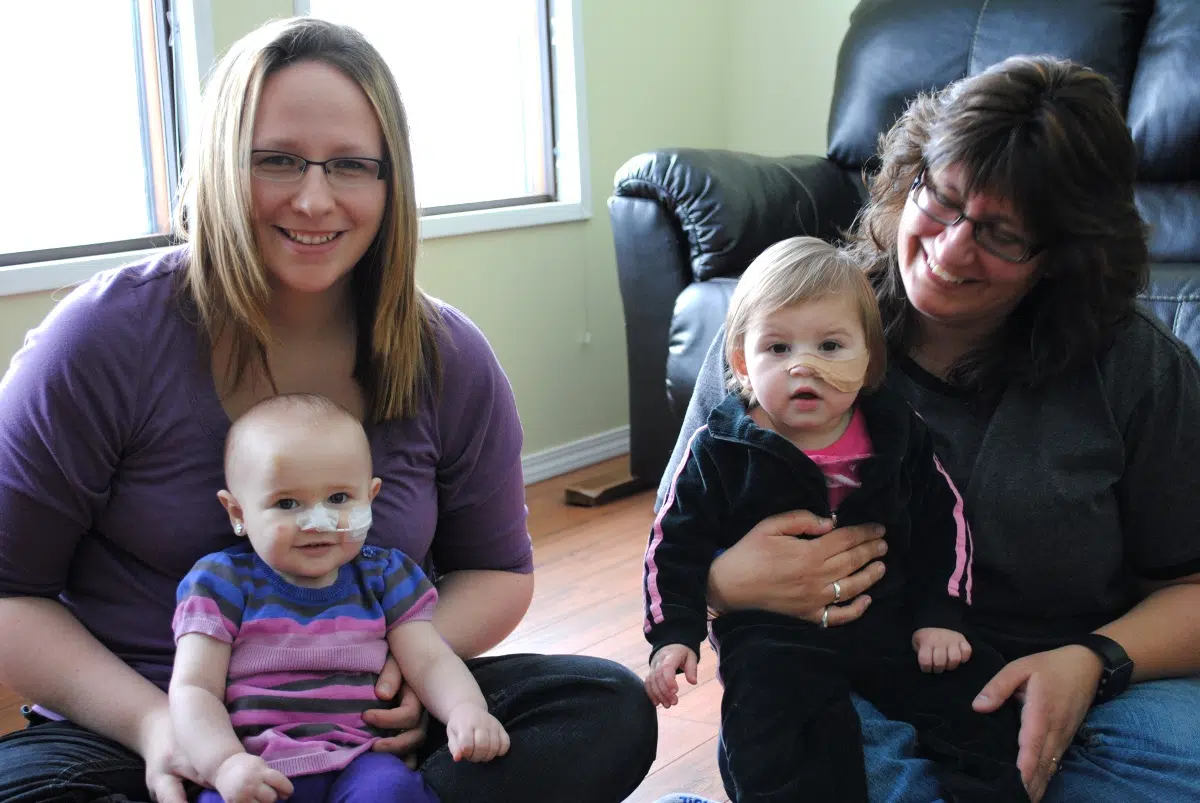
Parents of feeding tube babies work to create support group
Amelia Gareau, an 11-month-old Prince Albert girl, takes naps, plays and makes a mess just like any other child, but there is a difference.
She just can’t eat like other children.
Amelia needs a feeding tube to survive because she has Hypotonia, a low muscle tone disorder, so she has difficulty swallowing and often chokes on liquids.
Almost three months ago she was admitted to the hospital with failure to thrive, she had stopped eating and lost five pounds.


